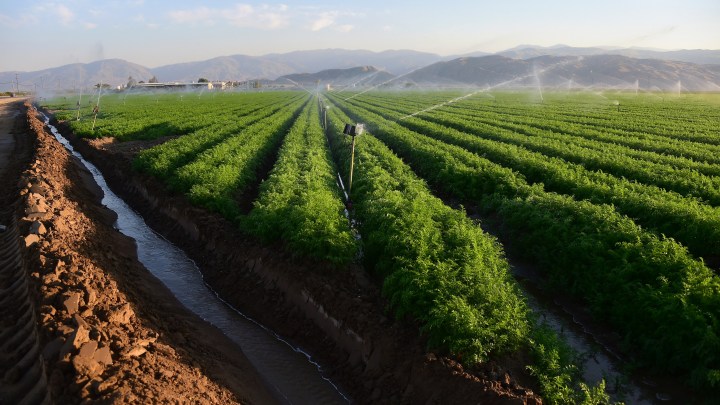
Water enters futures market, allowing buyers to lock in prices
Water enters futures market, allowing buyers to lock in prices

Wall Street is about to begin trading futures contracts for water under new financial products announced by CME Group and Nasdaq.
There is a new product allowing businesses in California — mostly farms and other agricultural businesses that rely on water — to lock in prices for water. But there are plenty of questions as to how this will actually work.
To state the obvious, it’s just not that easy to transact in water. It’s not a block of gold, or even a barrel of oil.
“If you want to ship that water somewhere, you’re going to spend way more money shipping it than that water’s actually worth,” said economist David Zetland, author of “Living With Water Scarcity.”
“It’s going to be a very narrow list of buyers and sellers because they have to be local to the water,” he added.
The market’s not liquid, as it were. But a small percent of California farmers do buy and sell. And this new futures product would let a farmer buy a year’s worth of water, at a price already locked in. Right now, it’s about $500 for 326,000 gallons.
Tim McCourt is managing director at CME Group, which is launching the water futures. “With already 2 billion people living in high-stress water areas, there’s a clear demand for the ability to manage price risks associated with water,” McCourt said.
Ideally, a price on water reflecting its scarcity would prompt users to conserve it and sell any surplus for profit. But with water, selling is often not allowed because of complex rights issues, said Peter Gleick, water expert at the Pacific Institute think tank.
“There are fewer places in California where water can be transferred legally,” he said. “The vast majority of California water isn’t accessible to these water markets.”
Gleick thinks the impact of the California water futures will be small. What is likely is the futures price will pinball up and down.
“We have a very volatile precipitation pattern. It can be dry or wet in any given year, and demand is tighter,” said Ellen Hanak, vice president and director of the PPIC Water Policy Center.
And for investors, these futures are a new way to bet on a fast-changing changing climate.
If you saw the movie “The Big Short” about the 2008 financial crisis, recall one investor who saw it coming, saying he’s now focused on trading water.
There’s a lot happening in the world. Through it all, Marketplace is here for you.
You rely on Marketplace to break down the world’s events and tell you how it affects you in a fact-based, approachable way. We rely on your financial support to keep making that possible.
Your donation today powers the independent journalism that you rely on. For just $5/month, you can help sustain Marketplace so we can keep reporting on the things that matter to you.











